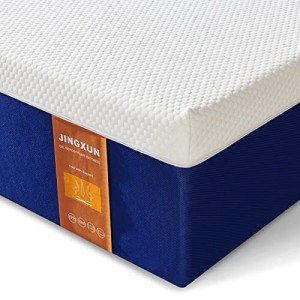There's A Reason Why The Most Common Memory Foam Mattress Debate Isn't As Black And White As You Might Think

Exploring the Benefits and Features of Memory Foam Mattresses: A Comprehensive Guide
In recent years, memory foam mattresses have surged in popularity, changing the way individuals think about sleep convenience. Understood for their special properties that supply assistance and minimize motion transfer, these mattresses have actually ended up being a staple in lots of families. This short article digs into the world of memory foam mattresses, exploring their functions, advantages, and considerations when purchasing one.
What is a Memory Foam Mattress?
Memory foam, or viscoelastic foam, is a kind of polyurethane foam that is delicate to temperature and pressure. Originally established by NASA for its crash security ability, it has found its way into the customer market mainly in the type of mattresses and pillows.
Key Features of Memory Foam Mattresses
- Conformity: Memory foam easily complies with the body's shape, supplying personalized assistance.
- Temperature level Sensitivity: It softens when warm and go back to its initial shape once the pressure is launched.
- Motion Isolation: The foam takes in motion, making it an excellent choice for couples.
- Toughness: Generally, memory foam mattresses have a longer life-span compared to standard spring mattresses.
Benefits of Sleeping on Memory Foam
1. Reduction of Pressure Points
Memory foam mattresses master their ability to distribute body weight equally. This helps alleviate pressure on sensitive locations such as the hips and shoulders, reducing the threat of pain and pain during sleep.
2. Enhanced Spinal Alignment
These mattresses promote proper spinal alignment, which is vital for a restful night's sleep. The supportive nature of memory foam assists keep the spine in a neutral position, making it an exceptional choice for those suffering from back problems.
3. Minimized Motion Transfer
For individuals who share a bed, the capability of memory foam to take in motion can considerably improve sleep quality. It avoids disruptions triggered by a partner moving during the night, which is a typical grievance with traditional spring mattresses.
4. Hypoallergenic Properties
Memory foam is resistant to dust termites and irritants, making it an ideal choice for allergy sufferers. The thick structure of the foam prevents lots of allergens from accumulating, promoting a healthier sleeping environment.
5. Variety of Options
Memory foam mattresses can be found in different types, including gel-infused, plant-based, and standard memory foam. This range allows customers to select a mattress that best fits their individual choices and requirements.
Considerations Before Purchasing a Memory Foam Mattress
Although memory foam mattresses offer many advantages, potential buyers should think about the following elements:
1. Firmness Levels
Memory foam mattresses typically are available in a range of firmness levels. It's important to select a firmness that aligns with your sleeping position:
- Side Sleepers: Benefit from a softer mattress that cushions the shoulders and hips.
- Back Sleepers: Require a medium-firm mattress for ideal spinal alignment.
- Stomach Sleepers: Should go with a firmer mattress to prevent the spinal column from flexing unnaturally.
2. Density
The density of a memory foam mattress can impact performance. A 10-12 inch density is typically suggested for optimal support and convenience.
3. Heat Retention
Some memory foam mattresses can maintain temperature, making them feel warmer than other types. To resolve this, consider gel-infused options or those with cooling technologies.
4. Warranty and Trial Period
Buying a mattress is a considerable investment. Search for stores that provide generous trial periods and warranties, allowing you to check the mattress and guarantee it fulfills your needs.
5. Price Range
Memory foam mattresses can differ commonly in price, affected by elements like brand credibility, products used, and additional features. It's vital to research and discover a balance between quality and budget plan.
Often Asked Questions (FAQs)
Q1: How long does a memory foam mattress last?
A: Typically, a high-quality memory foam mattress can last between 7 to 10 years, depending on usage and care.
Q2: Can I use a routine bed frame with a memory foam mattress?
A: Yes, memory foam mattresses can be used on various bed frames, including box springs, slatted frames, and adjustable bases.
Q3: Are memory foam mattresses safe for kids?
A: Yes, memory foam mattresses are safe for children as long as they fulfill safety standards and certifications. Try To Find GREENGUARD Gold certification for low emissions.
Q4: How do I look after my memory foam mattress?
A: Regularly rotate your mattress to promote even wear, and use a protective cover to avoid stains and damage. Buy Memory Foam Mattress Online as needed, and prevent utilizing harsh chemicals.
Q5: Can memory foam mattresses be turned?
A: Most memory foam mattresses are created to be one-sided and must not be turned. However, they can be rotated to extend their life-span.
A trip to a memory foam mattress store can be an enlightening experience, providing adequate insights into sleep comfort. With a myriad of options available and various advantages to consider, it's essential for buyers to examine their requirements thoroughly. By understanding the benefits, key features, and factors to consider before purchasing, customers can make a notified decision to make sure peaceful and rejuvenating sleep. As sleep plays an important role in overall health and well-being, investing in a quality memory foam mattress might be one of the most significant choices one makes for their sleep hygiene.

